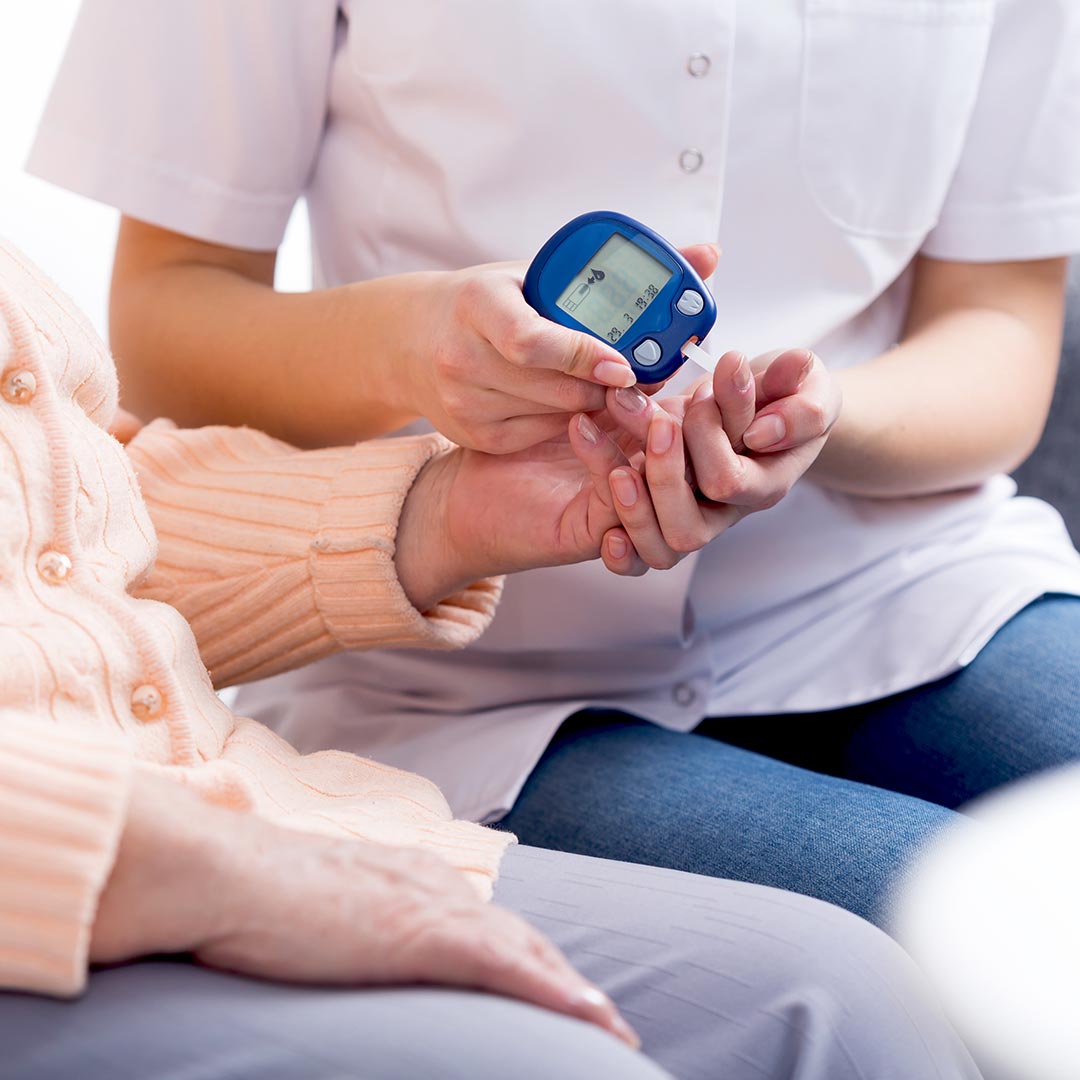What is Diabetes?

Diabetes Mellitus, commonly referred to as diabetes among the public, is a lifelong disease that develops when the gland called pancreas does not produce sufficient amounts of insulin hormone or the insulin hormone it produces cannot be used effectively. As a result, the person cannot use the sugar, that is, glucose, that passes into the blood from the food he eats, and his blood sugar begins to rise.
In healthy individuals, fasting blood glucose level is between 70-100 mg/dL. An increase in blood sugar levels above this range usually indicates diabetes.
basically Type 1 Diabetes And Type 2 Diabetes There are two types as in diabetes The factors that cause the disease vary depending on these species.
Although genetic factors play a major role in the causes of type 1 diabetes, viruses that damage the pancreas organ that produces the insulin hormone involved in regulating blood sugar, malfunctions in the body defense system and autoimmunity are among the factors that cause the disease. There is an absolute lack of insulin. In addition, the more common type of diabetes is The causes of type 2 diabetes can be listed as follows:
- Obesity (overweight)
- Having a history of diabetes in the parents
- advanced age
- sedentary lifestyle
- Stress
- Gestational diabetes during pregnancy and giving birth to a baby with a higher birth weight than normal
There are many different types of diabetes. The most common type of diabetes, which usually occurs in individuals over the age of 35-40, is Type 2 diabetes.
In type 2 diabetes, although insulin production in the pancreas is sufficient, insensitivity to this hormone develops because the receptors that detect the insulin hormone in the cells do not work, and insulin resistance is at the forefront. In this case, blood sugar cannot be transported to the tissues by insulin and the blood glucose level rises above normal.
Type 2 Diabetes accounts for 90-95 percent of cases and usually occurs later in life in overweight people. Most of his patients are obese. Type 2 diabetes develops gradually and is most often identified in adulthood. However, with the increase in obesity in childhood, this disease is seen in more and more children.
What are the symptoms of diabetes?
- Drinking a lot of water, urinating a lot
- Feeling of weakness and fatigue
- dry mouth
- Rapid and unintentional weight loss
- blurred vision
- Discomfort in the form of numbness and tingling in the feet
- Wounds healing slower than normal
- Skin dryness and itching
- Acetone-like odor in the mouth
In addition, while symptoms of decreased sexual desire occur in men, patients may experience symptoms such as frequent urinary tract infections and yeast infections.
How is diabetes diagnosed?
It is determined whether a person has diabetes or not by measuring fasting blood sugar (FBG) or Oral Glucose Tolerance Test (sugar load). FBG measurement of 100-125 mg/dl is a signal of hidden sugar (pre-diabetes). A FBG measurement result of 126 mg/dl or more indicates the presence of diabetes. In OGTT, the blood sugar value 2 hours after drinking glucose-rich liquid is important. If the second hour blood sugar measurement is 140-199 mg/dl, latent diabetes is diagnosed, and if it is 200 mg/dl or higher, diabetes is diagnosed. Again, if HbA1c is %6.5 and above, diabetes is diagnosed.
What are the treatment steps in diabetes?
- Patient education, social and hygienic precautions
- Increasing physical activity
- Medical nutrition therapy (diet)
- Oral antidiabetic drugs (diabetic drugs)
- insulin therapy
When is insulin treatment necessary in people with diabetes?
- For diabetics whose blood sugar remains high despite compliance with the nutrition plan, exercise and medications they take.
- Patients who will undergo surgery
- During surgery
- Pregnant women who were diagnosed with diabetes during pregnancy and whose blood sugar control is not achieved despite exercise are recommended.
- People who have a severe infection and are not getting better
- Severe liver or kidney failure
- Insulin therapy should be applied to diabetics who begin to develop diabetes-related complications.
Blood sugar that remains high for a long time; Since it causes permanent damage to the entire body, especially the cardiovascular system, kidneys and eyes, individuals diagnosed with diabetes should immediately receive diabetes education and fully comply with the nutrition program approved by the dietician. The aim of diabetes treatment is to keep your blood sugar and other risk factors (such as cholesterol and blood pressure) under control and to prevent complications from occurring in the long term.
Dr. Sabiha Gökçen Asvaroğlu
Internal Medicine Specialist
Contact Us For Appointment:
Telephone line: 0392 444 3548 (ELIT)
Contact Form: https://www.elitenicosia.com/iletisim/













